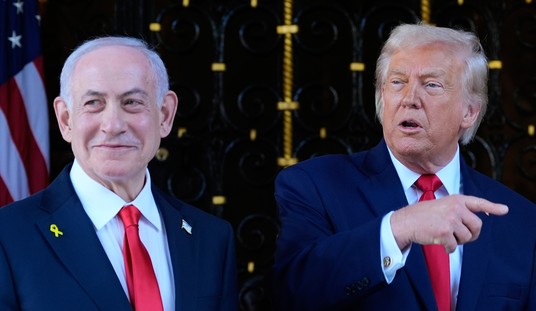Here’s an excerpt from Michael’s latest:
I actually know that Hezbollah in Iraq is connected in some ways to Hezbollah in Lebanon. Colonel Hort didn’t want to talk about that, however. No American officer I met wanted to tell me much about Hezbollah unless I agreed not to quote them by name. The few who were willing to discuss it anonymously said Hezbollah in Iraq members do receive training in Lebanon, Syria, and Iran from Lebanese Hezbollah members. I also know that the Iraqi branch of Hezbollah doesn’t engage in any kind of political activity whatsoever. They don’t even have a make-believe “political wing.” They don’t build hospitals or schools, and they do not collect donations for charity. They don’t do anything except kill people. Hezbollah in Iraq is far more vicious than Moqtada al Sadr and his men.
Colonel Hort would tell me this much, however: “Hezbollah was very very secretive in the beginning. We couldn’t see them well at all. They were extremely savvy [about operational security]. They were almost like a family in and of themselves. They’ve been focused on attacks against coalition forces rather than Iraqis or anyone else. They’ve gotten some specialized training, some weaponry like the RPG-29 – which is one of the best Eastern bloc RPGs out there – and they use them to hit M1 tanks. They’ve got the IRAM – the Improvised Rocket Assisted Mortar – that they’ve used to attack some of our Joint Security Stations. Those are their two specialties right there. They’ve also specialized in some of the more sophisticated EFPs. Hezbollah, though, is not very big. They aren’t like some of the other Special Groups out there. We’ve had a significant impact on them. They are really disrupted right now.” …
“Do you think the improvements in the last year and a half are permanent,” Ramon said, “or might Iraq become destabilized very quickly when the Americans leave?” I asked this of almost everyone I met last time in Iraq. It is the big question right now, and the truth is, nobody knows. (Colonel Hort here belongs in the optimist camp, though I’ll quote pessimists at length in later installments in this series.)
“It’s what we call fragile security right now,” Colonel Hort said. “We’re watching it closely with our Iraqi military counterparts. My focus, to answer your question, is ensuring that the 11th Iraqi Army Division, which is my counterpart, understands the intelligence requirements in order to target the insurgent groups. They’re continuing to develop their human source networks that allow them to see the enemy better. It’s something they didn’t really have last year. The Sons of Iraq are now part of the Iraqi Security Forces. They’re reporting to the battalion brigade division chain of command, whereas they used to report to me.”
My guess is that no victory over terrorism anywhere in the world will be permanent until the idea of Islamic extremism either runs its course or is discredited. This is a generational conflict. Of course, some politicians don’t believe that it is and have even abolished the term for terrorism, because that’s so yesterday. Time to move on. But the danger is complacency; and just as the Iraqi security forces have got to keep pushing their intelligence feelers out there to pick up new and emerging threats, perhaps the Western public has to keep thrusting out the Michael Tottens of the world to gather political intelligence. If Hezbollah in Iraq is linked to its namesake in Lebanon, then what’s the ripple through to Iran and to the US mission in Afghanistan? Maybe the answer is nothing, but the answers only come when the questions are posed.










Join the conversation as a VIP Member